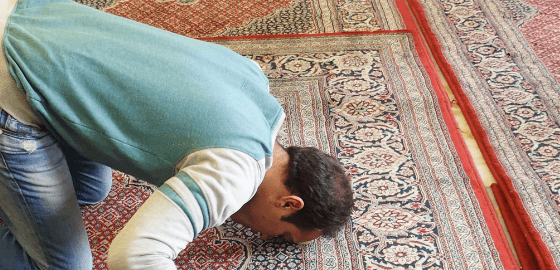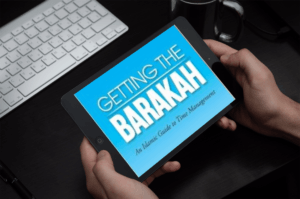Surah Yūsuf is one of the most beautiful and oft-studied Surahs of the Quran. In this short article, I hope to discuss the Surah from a different angle; Thematic Tafsīr.
Thematic Tafsīr is a modern method of Tafsīr in which the author/teacher analyzes a Surah for repeated themes and lessons. It is done by studying the Surah as a whole and cross-analyzing the various verses of the Surah for common themes. In applying this method to Surah Yūsuf, we can deduce four core themes that run throughout this Surah. Before we discuss these four themes, here is a brief summary of the Surah.
A Summary of Surah Yūsuf
Surah Yūsuf is unique in that the entire Surah tells a single story from beginning to end. This is not the usual method of storytelling in the Quran. The reason for this is that the entire story forms a single narrative full of important lessons, the beginning, and the end of the stories are equally needed to derive these lessons.
The Surah narrates the story of Prophet Yūsuf (Joseph). As a child, he has a dream of the sun, moon and eleven stars bowing to him. His brothers grow jealous of him and plot against him. They throw him in a well to get rid of him. He is taken away as a slave and ends up in the home of a minister in Egypt.
There he grows up. As a young man, he faces new trials. The minister’s wife tries to seduce him, but he resists and for this, he is wrongly imprisoned. He spends the next few years in prison, where he meets other prisoners and interprets their dreams. One of these prisoners is eventually released and ends up serving the king of Egypt.
At this point, the king has a dream and the ex-prisoner asks Yūsuf (s) to interpret it. Impressed by Yūsuf ‘s interpretation and piety, the king releases him from prison and makes him a finance minister. A drought causes Yūsuf’s brothers to seek financial assistance from the minister of Egypt which brings them into the court of Yūsuf. There, he confronts them, reveals his true identity, and ultimately forgives them.
Prophet Yūsuf’s family migrates to Egypt accepting Yūsuf as their leader. Thus his dream comes true, and the story ends. In this story, which is told in a lot more details in the Quran, are thousands of lessons. Most of these lessons revolve around one of four core themes.
Good triumphs in the end
The first theme we derive from this Surah is the importance of having hope in a good ending. As long as we are on the straight path, sincerely striving to please Allah, victory will come eventually. For some, it will be in this world, and for others, it will be in the next world, but it will eventually come.
This lesson inspires us with hope, no matter how bleak our situation may be. The Surah was revealed during the Makkan Era when the Prophet (s) did not yet control any lands or have a huge following yet. In many ways, it serves as a prophecy that Prophet Muhammad (s) was eventually going to triumph over the Arabs and attain power in those lands. It came through over a decade later.
The lesson for us all is straightforward; work hard for the sake of Allah and never lose hope. Victory will eventually come to the righteous.
Trials in the lives of the righteous
Saʿd b. Abī Waqqāṣ reported that he said, “O Messenger of Allah, which people are tested most severely?” The Messenger of Allah (s) said, “They are the prophets, then the next best, then the next best. A man is tried according to his religion. If he is firm in his religion, his trials will be more severe. If he is weak in his religion, he is tried according to his strength in religion. The servant will continue to be tried until he is left walking upon the earth without any sin.” (Sunan al-Tirmidhī 2398, Grade: Ṣaḥīḥ)
This narration summarizes the second theme of Surah Yūsuf; the righteous face the most difficult trials in life. Islam teaches us that life is a test. Every single human being is tested to determine their placement in the Afterlife. The intensity of the test depends on the spiritual state of the individual. The stronger a person is in faith, the more difficult their trials will be.
This is why the prophets had the toughest tests, due to their closeness to God. Prophet Yūsuf (s) faced both the trials of hardship (abandonment, slavery, imprisonment) and the trial of temptation (seduction). This teaches us the two manners in which we are constantly tested in life. Each phase of life is a trial through hardship, a trial through temptation, or a mixture of both. We must prepare for both types of trials if we want to earn a high rank in the Afterlife.
True Dreams
The third theme that runs throughout this Surah is the theme of true dreams. In this story, Yūsuf, two prisoners and a king all have dreams that come true. This is evidence that true dreams predicting the future are real and should be taken seriously.
Abū Saʿīd al-Khudrī reported that the Prophet (s) said, “When one of you sees a dream he likes, it is from Allah so let him praise Allah for it and speak about it. When one of you sees something else he dislikes, it is from Satan so let him seek refuge from its evil and not mention it to anyone. It will not harm him.” (Ṣaḥīḥ al-Bukhārī 6584)
Abū Hurairah reported that the Messenger of Allah (s) said, “When the end of time approaches, the dream of a believer can hardly be false. The dream of a believer is one of forty-six parts of prophecy and whatever is from prophecy cannot be false.” (Ṣaḥīḥ al-Bukhārī 6614, Ṣaḥīḥ Muslim 2263)
The above narrations confirm that true dreams will continue until the end of time. In fact, they will increase in frequency towards the end of time. True dreams are a gift from God showing people a glimpse of the future, as glad tidings if the future is good, or as a warning, if the future is an upcoming calamity. The ability to interpret dreams is innate and gifted to a few by God. It cannot be taught formally and relies on intuition and deep piety.
The Danger of the Nafs
The final theme of Surah Yūsuf is the importance of spiritual development. Every human possesses a Nafs (soul/desires) which can incline towards sin. The Nafs goes through various phases, the lowest of which is mentioned in this Surah, al-nafs al-ammāra bi-l-sūʾ (The soul that is inclined towards sin).
Our goal in life is to be aware of the temptations of the soul. We see two examples in this Surah of people who gave in to these temptations; the brothers of Yūsuf who threw him in a well out of jealousy, and the wife of the minister who tried to seduce him. These two examples show two different ways in which the soul can be corrupted; jealousy and lust. We must protect ourselves against both of these sources of corruption.
Purification of the soul is an essential part of Islam. Some Muslim groups ignore this aspect of Islam, due to their obsession with other parts of Islam like theology, legal rulings or political revival. By doing so, they allow corruption to slowly sneak into their souls and ruin it. Purification of the soul is something that no true believer can afford to neglect.
This ends my brief thematic Tafsīr of Surah Yūsuf. To learn more thematic Tafsīr, purchase my book ‘Themes of the Quran’ from one of the links below:
1. PDF Edition
2. Kindle Edition
3. Paperback Edition







